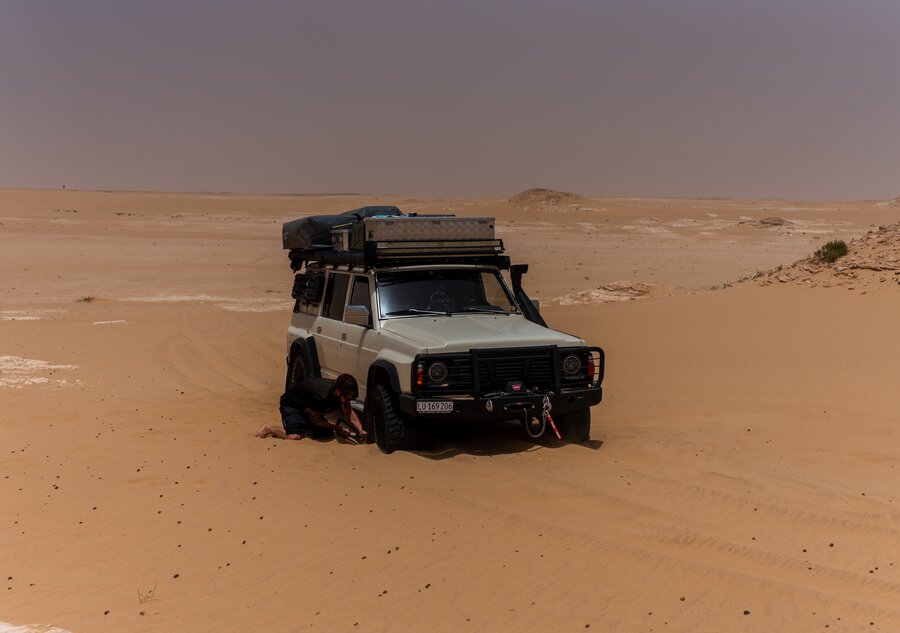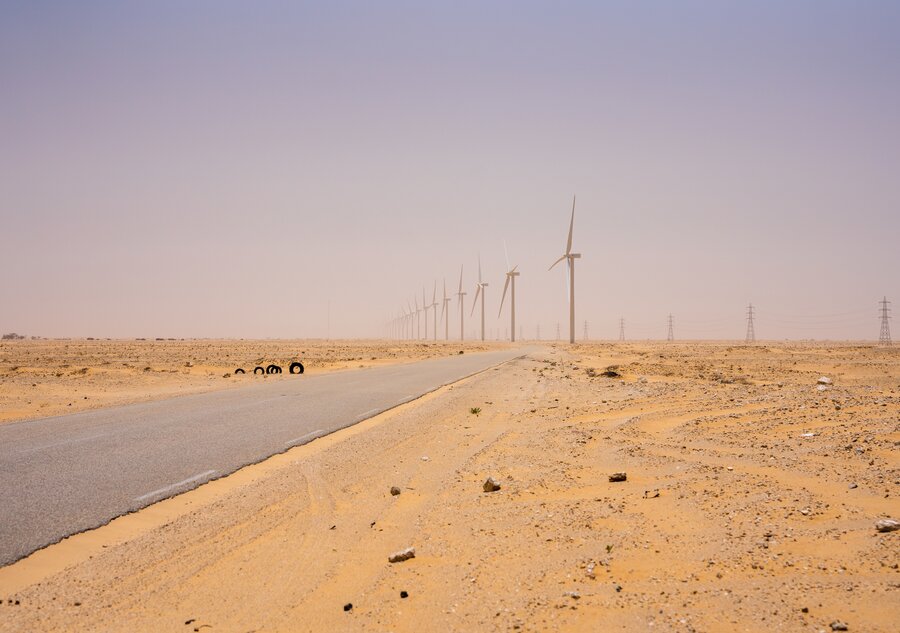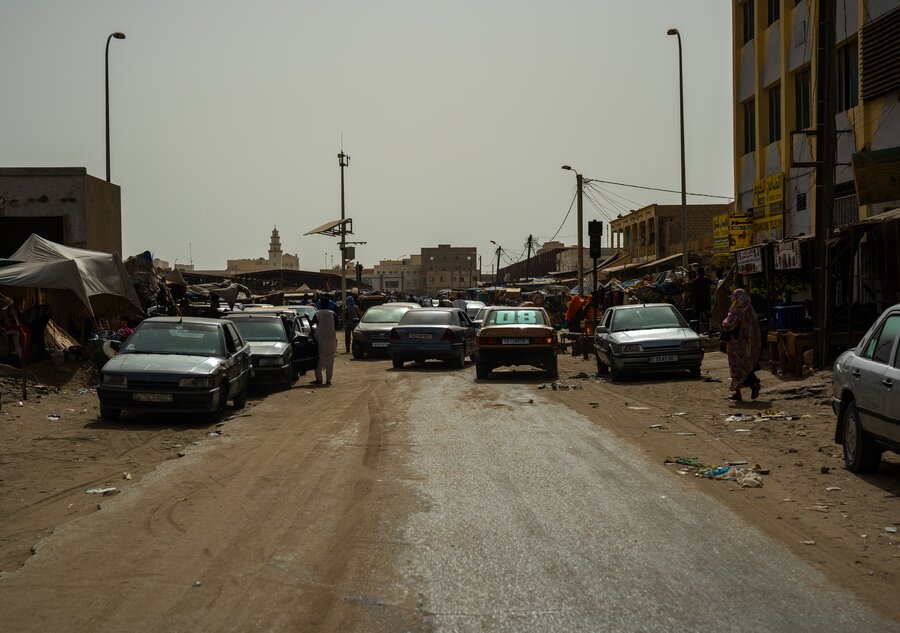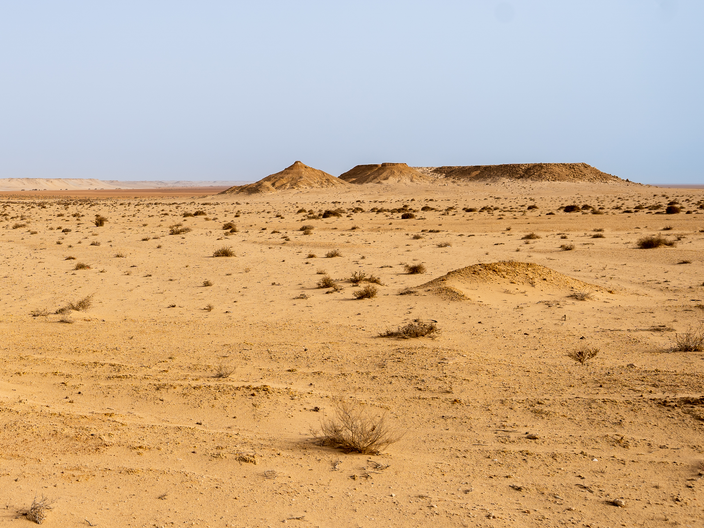Despite our short stay, we experienced Mauritania in many ways. The heart of the Sahara, with its barren, hot deserts in the north, where the seemingly endless roads are dusted with and surrounded by sand and its green south, where a national park serves as the border with Senegal. The two cities we visited were bone dry and yet, despite the heat, they were active, busy places – including traffic jams and busy markets. The people - and animals - have all adapted perfectly to their natural environment and live active lives. The influence of Islam is unmistakable and omnipresent. Women were hardly seen in the streets and men seemed proud to tell us about their classic family lifestyle, in which the women must do all the housework. It was not surprising that the local men were amazed at seeing us doing our own cooking. They were surprised that we knew our way around a kitchen and that we are traveling without our wives.
Mauritania
While preparing our big adventure, many experienced Africa travelers advised us that we would only start experiencing the "real" Africa once we reached Mauritania. For us, Mauritania was a country shaped by the Sahara: dry, arid, and hot all year round.
From the outset, our first impression of Mauritania at its border was one of strength and power. The Mauritanian army, taking us under their wing - sometimes in an almost frightening way – was efficient and imposing. Exhausted from our arduous trip through the punishing heat of Western Sahara, initial contact with the border guards seemed even more scarry. Mind you, we were not the picture of freshness as attested by our visa pictures showing our wild hair and sweaty faces.
Conscious of the crushing heat, we planned on hitting only a few sites in Mauritania. Our first destination was Nouadhibou, where we came across the first Atlantic Ocean fishermen. We then moved on to the capital, Nuakschott, where we sought refuge from the heat for a few days. Between these two cities, we experimented with Dötnius by trying it out on a sandy track. Afterr a few hours, we got stuck and were forced to turn back onto solid road!
Mauritania impressed us with its uniquely barren, sandy landscapes and its unimaginable heat. We were there, no doubt about it, at the wrong time of year and sadly missed out on seeing and appreciating much of its remarkable cultural history as we decided to limit our stay to a few days and pressed on to discover the "real" and green Africa to the south.















